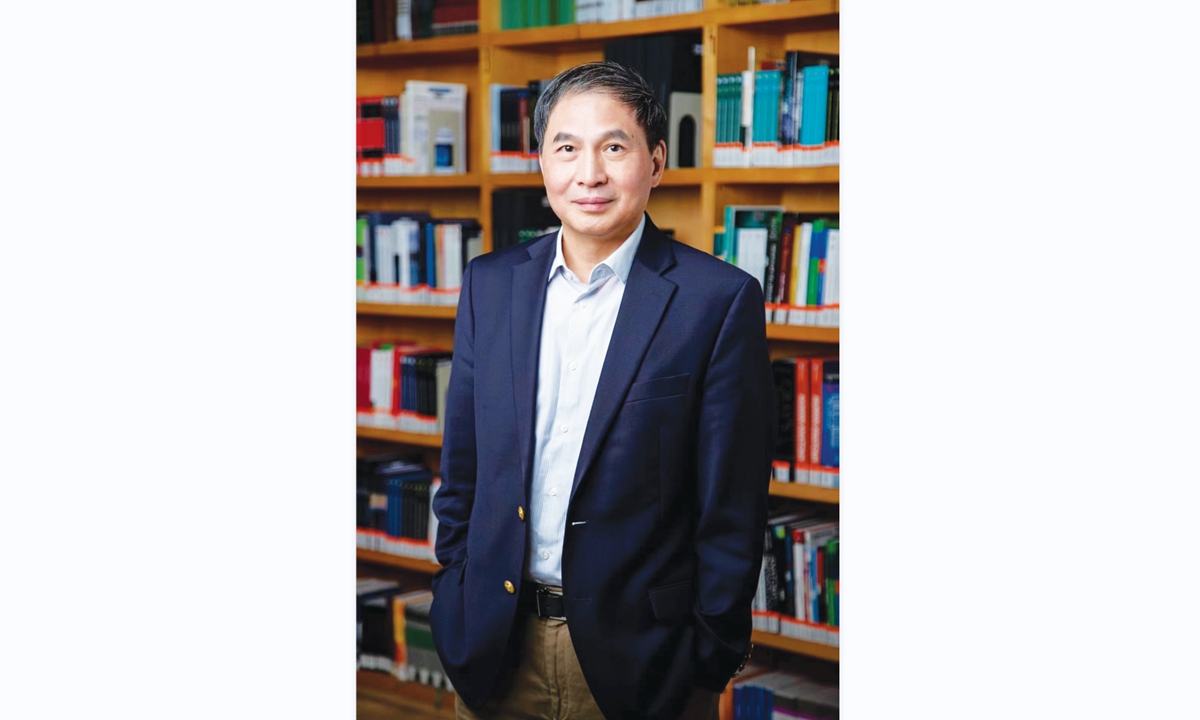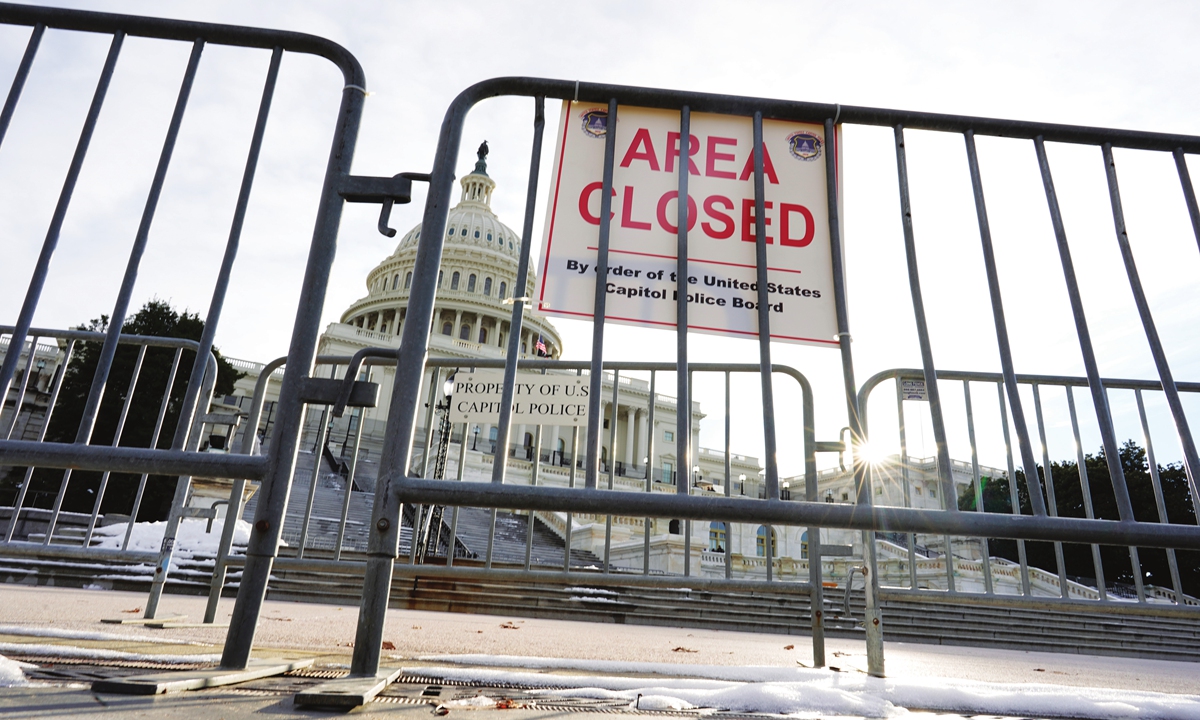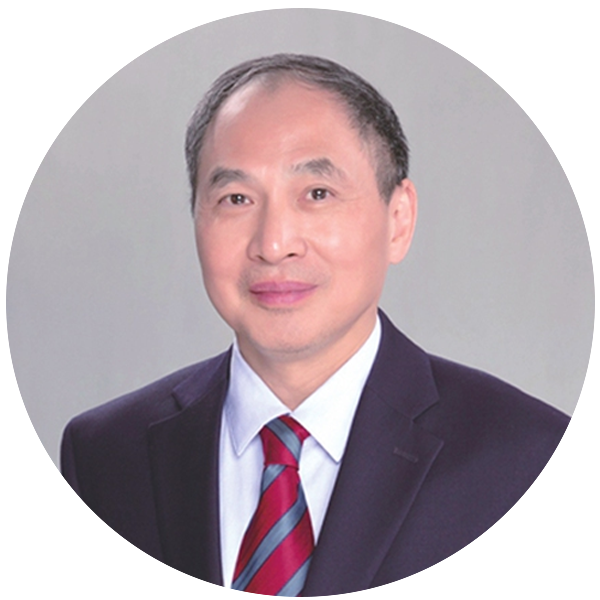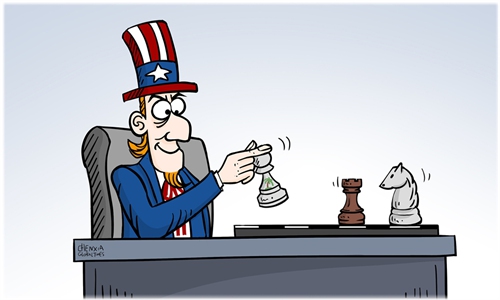US is not a sovereign state in the traditional sense of foreign policymaking: Chinese scholar

Zheng Yongnian Photo: Courtesy of Zheng
Editor's Note:
Political infighting in the US is becoming tenser and tenser ahead of the midterm elections, with former president Donald Trump's home being raided by the FBI. How will this political infighting evolve? With US-style democracy showing its cracks, how will it affect the US global leadership and US foreign policy, especially that regarding the Taiwan question? Global Times (GT) reporter Wang Wenwen talked to Zheng Yongnian (Zheng), professor at the Chinese University of Hong Kong, Shenzhen, and president of the Institute for International Affairs, Qianhai, over these issues.
GT: You said recently that the decline of political wisdom is an important factor on why the US is losing its bottom line on the Taiwan question. With populism prevailing in the US, is there any force in the country that can restrain its bottomless Taiwan policy?
Zheng: Separation of powers in the US is associated with the checks and balances system. The checks and balances system provides each branch of government - legislative, executive, and judicial - with individual powers to check the other branches and prevent any one branch from becoming too powerful. The prerequisite is that a consensus exists among the elites. However, this system of checks and balances no longer functions properly, mainly due to the rise of populism, especially after the rise of social media. Each branch has its own social base, and one does not coordinate with another. Therefore, consensuses can hardly be reached within the US government.
Why was there a consensus before? People tend to give credit to the advantages of democracy. But this is not necessarily true. From the end of World War II to the 1980s, the middle class in the US took up 70 percent of the whole population. No matter Republican or Democrat, they had to take into consideration the interests of these middle classes, so they wouldn't go to the extreme.
Nonetheless, since the hyper-globalization in the 1980s, US society has become increasingly divided, from a middle-class society, to the current plutocracy with almost no middle forces. This is how populism rises. When the ruling elites cannot handle domestic divergences, they begin to manipulate foreign policy.
Hence we see the mess the US has created on the Taiwan question. There are no checks and balances, only individual politicians competing for who is more radical. In the past, it is the president who took charge of the military and foreign policy, and the Congress did not play a major role. But with structural changes in the US, all the other forces such as the Congress, state governments and individual politicians come to join foreign policy, making the US have no one in charge of foreign policy. We can hardly say that the US is a sovereign state in the traditional sense of foreign policymaking, and the president's right in foreign policy has been more and more weakened.
Therefore, we cannot understand the current political situation in the US with the past checks and balances system. The US' Taiwan policy has narrowed into the showcase of the individuality of politicians. There is no such a thing as the US' "Taiwan policy," or the US' China policy, or the US' Russia policy.
How will this affect the Taiwan question depends on how we understand and cope with the new situation of US politics. We cannot change the situation inside the US. Power in the US is so diffused, which runs counter to US national interests. We have to craft our US policy and deal with any consequences based on this situation.
GT: Trump is known for his unpredictability. It was reported that during his tenure, he once compared Taiwan to the tip of a Sharpie pen and the Chinese mainland to the historic Resolute Desk in the Oval Office. Then secretary of state Mike Pompeo called off his Taiwan visit in early 2021 at the last minute. But now, is the US preparing to give up the desk for the sake of the pen tip?
Zheng: Not really. The actions the US has done regarding Taiwan cannot be called "policy." They are only reflections of the stance of individual politicians. They are not in line with US interests or Taiwan's interests, but their individual political interests. In other words, they play the Taiwan card in order to gain individually. They are undermining the US' democratic system.
Even Biden would have a Taiwan policy from the perspective of his interests. If for the sake of US national interests, he would have another policy. In front of personal interests, US national interests are becoming illusory.
Be it politicians, Congresspersons, or former politicians, they tend to justify their words and deeds from the following two aspects. First, they say they are safeguarding so-called democracy in Taiwan island. Second, they believe China's stake in the Taiwan question is to seek hegemony in the West Pacific and squeeze US and Western forces out of the West Pacific.
But for China, the Taiwan question is a matter of national reunification, rather than what these US politicians said of the competition of different systems or China seeking hegemony. If we are to seize the initiative of the Taiwan question, we must separate China-US relations from the issue of national reunification. It is wrong to perceive the Taiwan question as an attaché to the China-US relations. It is also wrong to believe that as long as we are able to defeat the US or Japan, the Taiwan question could be solved. Acknowledging that the US is always there and Japan is always there is the prerequisite to solving the Taiwan question.

The Capitol Hill Photo: VCG
GT: You said that no matter how the US manipulates the Taiwan question, it will not save the US from its declining internal politics. The FBI's search of Trump's home in Florida and the news a senior Trump Organization adviser and formerly the company's longtime chief financial officer pleaded guilty made the outside world see the decline and chaos of US internal politics ahead of the US midterm elections. How will this political infighting evolve?Zheng: This reflects the polarization of US politics. Karl Marx made it right that economy is the base and politics is the superstructure. The economic and social division will inevitably lead to political division. US democracy has come to a crossroads, which will have major impact on diplomacy.
GT: US political polarization can hardly be resolved. Many people, including Americans themselves, worry that a civil war may break out. What do you think?
Zheng: There is not necessarily a civil war. The US Constitution is loose enough that even revolution, insurrection and independence can have a constitutional basis. The situation where the state of Texas declares its independence from the US is unlikely to occur, but the US can become a more decentralized system of the states. If the authority of the federal government is more and more eroded and power more and more diffused, the US could become a decentralized confederacy.
GT: US-style democracy is showing its cracks. How will it affect the US global leadership role?
Zheng: US leadership consists of several parts, and democracy is only one of them. Democracy is something used to symbolize the US' political system and is never the most critical part of US leadership. I see US leadership resting on economics, military, technology and markets.
US political scientist Professor Joseph Nye coined the term "soft power," something I think is hard to quantify. There are only a few successful examples of US-led democratic transformation. The first is the US occupation of Japan post-WWII and the second is the US occupation of Germany. But even without the US, the two countries could become democratic, as Germany is close to European culture and Japan had the Meji Restoration. The US also played a helpful hand in South Korea's democratic transformation, but not crucial. Besides these cases, all other US democratic transplantations have failed.
Therefore, I don't think democracy plays much of an important role in US leadership. Technology and economy in the US will continue to develop. But it is worth noting that democracy ensures US openness. Once democracy declines and populism rises and the US leans toward isolationism, it will affect the US' hard power.
GT: You just mentioned that the US partisanship and individual interests go beyond national interests. Such a US can hardly make consistent policies. How much strength do those small cliques and initiatives such as Quad, AUKUS, Chip 4 and the Indo-Pacific Economic Framework, all of which are aimed at China, have?
Zheng: Very little. Just look at what Singapore Prime Minister Lee?Hsien Loong warned of in a televised address ahead of Singapore's national day - the risk of US-China miscalculation. Southeast Asian countries are concerned about an open conflict between China and the US. The US is looking to form various kinds of anti-China blocs, but whether these blocs deliver the US-desired solidarity is in question. Many US allies have interests in the US, but in China as well. All regional groups cannot have any influence without the participation of China, like the Comprehensive and Progressive Agreement for Trans-Pacific Partnership.
If China wants to lead the world, it must have a global view. China's objective is not to confront the US, but to realize the shared future for mankind. We must stick to the open and diverse path and practice true multilateralism that does not target any third country, like the Belt and Road Initiative. We cannot view China-US relations from a bilateral perspective, but from a worldview.
GT: In a previous interview with the Global Times, you compared today's US to China in the late Qing Dynasty. Can we say that the world is preparing for the US to implode?
Zheng: Now inside the US, people have no consensus of what kind of America is needed. But the outside world sees clearly. In the past, some countries would like to follow the US because the US could provide certainty. But now the US cannot provide any certainty, so these countries do not follow the US whole-heartedly. We cannot view US allies from the Cold War perspective.
In late Qing Dynasty, people didn't have a clear view of the West even after two Opium Wars and were only waken up after Japanese aggression. A country, like the people, is not willing to face up to the crisis and will only face it when having to. This is the essence of the rise and fall of great nations. It will be a long process.


